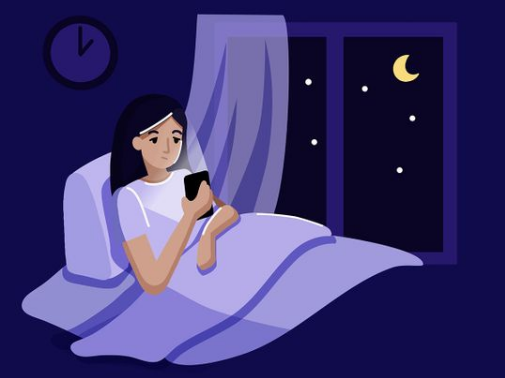Sleep Sabotage: Breaking the Chains of Revenge Bedtime Procrastination
After having a long day with an overflowing schedule, do you prefer staying up late and consider it as the only chance to have me-time? If you have the habit of doing so, you might perform a revenge bedtime procrastination. What is it actually? Who tends to perform this? How does it affect our health? How to tackle it? Let’s get into it one by one.
Revenge bedtime procrastination refers to getting revenge for our busy daytime schedule and valuing the freedom of late-night hours more than going to bed. In other words, it is a way to gain control over our time and reclaim hours for ourselves after not having control of our daytime hours. The concept of delaying sleep is a familiar one to researchers, but the unique aspect is the revenge angle. This phenomenon is said to be rooted in the Chinese term “bàofùxìng áoyè” gaining popularity on social media, and loosely translates to “revenge bedtime procrastination” or “retaliatory staying up late”.
The concept of sleep procrastination is still a relatively new area in the field of sleep science, sparking ongoing discussions about the psychological factors influencing this voluntary reduction in sleep. Individuals practicing bedtime procrastination are aware of the importance of adequate sleep but struggle to implement it, creating what is termed an “intention-behavior gap.” This gap is often attributed to a breakdown in self-regulation or self-control, particularly as our ability to exercise self-control tends to diminish towards the end of the day, potentially facilitating sleep procrastination. While not universally accepted, an alternative perspective suggests that sleep procrastination may be more prevalent among individuals with an evening chronotype, commonly known as “night owls,” who must conform to schedules designed for “early birds.” In the context of revenge bedtime procrastination, sacrificing sleep for leisure is viewed by some as not necessarily a failure of self-control, but rather an attempt to carve out recovery time in response to stress.
As sleep procrastination research remains in its nascent stages, identifying its primary targets is a challenge for experts. Nonetheless, a study indicates that students and women exhibit a higher propensity for bedtime procrastination. Those with an evening chronotype, predisposed to staying up late, often display this tendency. Notably, individuals who procrastinate in various life aspects are more prone to sleep procrastination. Revenge bedtime procrastination correlates with heightened daytime stress, possibly exacerbated by extended work hours, leaving minimal time for leisure. The COVID-19 pandemic and associated stressors, including stay-at-home orders and increased work hours, contribute to its surge. Surveys reflect a significant rise in sleep issues during the pandemic, affecting nearly 40% of individuals, with women experiencing reduced leisure time.
Lack of sufficient sleep can have negative effects on various aspects of your life, impacting not only your relationships and professional performance but also compromising your ability to drive safely. In addition to experiencing fatigue, you may also encounter other associated symptoms, such as slower thinking, less attention, worse memory, struggle to make decisions, anxiety, and feeling irritated. Over time, sleep deprivation can worsen our health, such as heart disease, diabetes, obesity, a weaker immune system, and hormone-related problems.
Here are several ways to prevent revenge bedtime procrastination. First, set up a comfortable vibe before bedtime so you can relax. Second, keep a consistent sleep time and wake-up time. Third, avoid alcohol or caffeine late in the afternoon or evening. Fourth, stop using electronic devices (smartphone, laptop, and tablet) at least half an hour before sleep. Last but not least, create a stable routine to do before sleep, for instance, reading books, meditating, or gently stretching. Through these several ways, hopefully, we can live a healthier life ahead.
References:
https://www.sleepfoundation.org/sleep-hygiene/revenge-bedtime-procrastination
https://www.webmd.com/sleep-disorders/revenge-bedtime-procrastination


